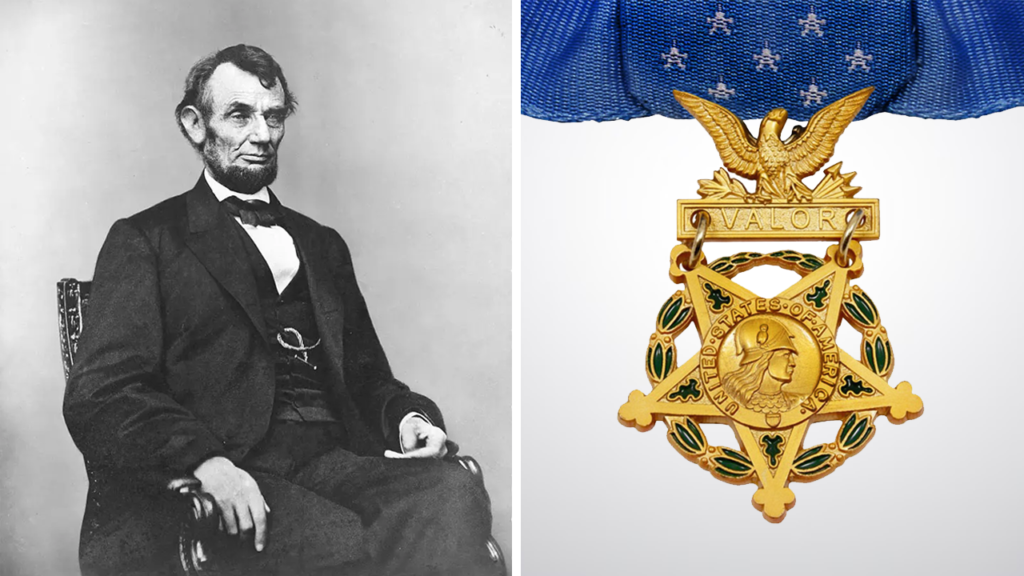On July 12, 1862, a resolution introduced by Sen. Henry Wilson, R-Mass., for a Medal of Honor for the Army was approved by Congress and signed into law by President Abraham Lincoln. The resolution, titled “A Resolution to provide for the Presentation of ‘Medals of Honor’ to the Enlisted Men of the Army and Volunteer Forces who have distinguished, or may distinguish, themselves in Battle during the present Rebellion,” marked the official inception of the Medal of Honor, the paramount U.S. military decoration.
Also known as the Congressional Medal of Honor, this prestigious award was first instituted by Congress in 1861 for the Navy and then extended to the Army in 1862. Initially, the honor was exclusively reserved for enlisted men, with officers eventually becoming eligible to receive the award. To qualify for the Medal of Honor, military service members must demonstrate conspicuous gallantry and intrepidity at the risk of life, above and beyond the call of duty, while engaged in action against an enemy of the United States or involved in military operations against a foreign force.
Recommendation packets for the Medal of Honor require meticulous reports on the act itself, eyewitness testimonies, and compelling evidence, all of which must receive approval from the military command structure, ultimately culminating in the endorsement of the U.S. President as the commander-in-chief. The Medal of Honor is suspended from a blue ribbon adorned with 13 white stars, symbolizing the core values of bravery, courage, sacrifice, and integrity exhibited by recipients in critical moments of valor.
The Medal of Honor is the highest military award for valor in the United States, with only 65 living recipients currently recognized. Since its inception, 3,526 Medals of Honor have been awarded to 3,516 individuals, with over 40% of the awards stemming from actions during the American Civil War. These medals are presented sparingly and reserved for the most exceptional acts of bravery. Recipients of the Medal of Honor are honored by the U.S. President during formal ceremonies at the White House.
Throughout history, a select few service members have received the Medal of Honor twice, all for actions during or prior to World War I. Theodore Roosevelt remains the only U.S. president to have been awarded the Medal of Honor, posthumously in 2001 as recognition for his valor during the Spanish-American War a century earlier. Dr. Mary Edwards Walker stands as the sole female recipient of the Medal of Honor, acknowledged for her service as a civilian with the U.S. Army during the Civil War.
Addressing the evolving design of the Medal of Honor, the U.S. Army, Navy, Air Force, Marine Corps, and Coast Guard each uphold distinct variations, with the Air Force unveiling its unique design in 1965. Congress designated March 25th as National Medal of Honor Day in 1990, solidifying the annual commemoration of this prestigious military decoration.











